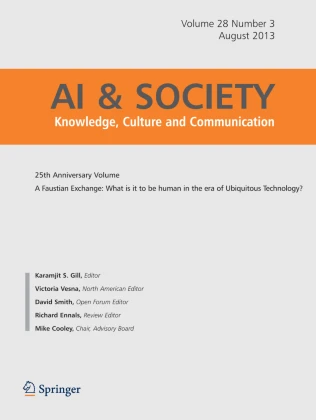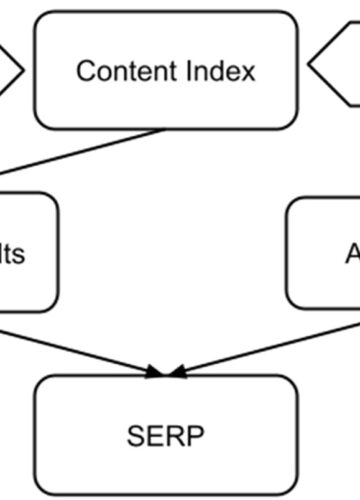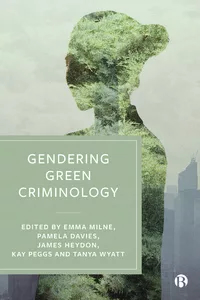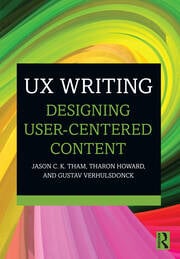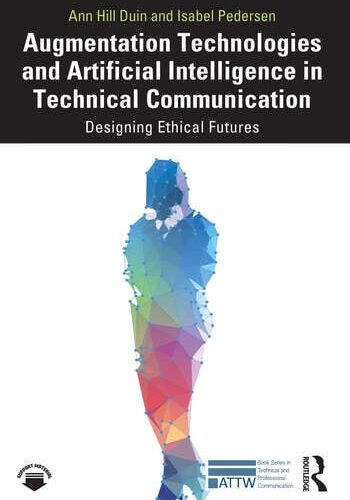Publications
Books, articles, and reports published by Digital Life Institute members.
Compliance and enforcement in a brave new (green) world: best practices and technologies for green governance
Delon Omrow, Michelle Anagnostou, Phillip Cassey, Steven J. Cooke, Sheldon Jordan, Andrea E. Kirkwood, Timothy MacNeill, Tanner Mirrlees, Isabel Pedersen, Peter Stoett, and Michael F. Tlusty
Journal Article: International and transnational cooperation is needed to strengthen environmental governance initiatives with advanced technologies. In January 2023, Ontario Tech University hosted a symposium entitled Tech With a Green Governance Conscience: Exploring the Technology–Environmental Policy Nexus. Attendees spanned diverse disciplines, sectors, and countries, bringing unique and diverse perspectives to the technology–environmental policy nexus. Emergent themes arising from the symposium include the role of artificial intelligence in environmental governance, while eliminating the detrimental social impacts associated with these advanced technologies via algorithmic bias, misunderstanding, and unaccountability. The symposium explored the tech–society–ecology interface, such as the authoritarian intensification of digitalized environmental governance, “technocracy”, and the ethical implications of sacrificing democratic legitimacy in the face of imminent environmental destruction. Select participants (i.e., co-authors) at the symposium provided input on a preliminary framework, which led to this perspective article focused on the politics surrounding green governance in the 21st century. We conclude that while emerging technologies are being deployed to address grand environmental challenges such as climate change, biodiversity loss, and resource depletion, the use of these various technologies for progressive environmental policy development and enforcement requires co-productivist approaches to constructive technology assessments and embracing the concept of technologies of humility. This necessitates a space for dialogue, reflection, and deliberation on leading adaptive environmental governance in the face of power and politics, as we interrogate the putative neutrality of advanced technology and techno-solutionism.
Access HereToward Digital Life: Embracing, Complicating, and Reconceptualizing Digital Literacy in Communication Design
Danielle Mollie Stambler, Saveena (Chakrika) Veeramoothoo, Katlynne Davis
Journal Article: This article is the introduction to the Communication Design Quarterly special issue on digital life. It explains the exigency for this issue and details how digital literacies in technical and professional communication are complicated by emerging technologies. It also demonstrates the potential for moving toward a model of digital life as a flexible way of foregrounding and talking about the work we are all already doing to understand and improve our post-human lives.
Access HereGenerative AI Adoption in Postsecondary Education, AI Hype, and ChatGPT’s Launch
Isabel Pedersen
Journal Article: The rapid integration of generative artificial intelligence (AI) into postsecondary educationand many other sectors resulted in a global reckoning with this new technology. This paper contributes to the study of the multifaceted influence of generative AI, with a particular focus on OpenAI’s ChatGPT within academic settings during the first six months after the releasein three specific ways. First, it scrutinizesthe rise of ChatGPT as a transformative event construed through a study of mainstream discourses exhibiting AI hype. Second, itdiscusses the perceived implications of generative AI for writing, teaching, and learningthrough the lens of critical discourse analysis and criticalAI studies.Third, itencourages the necessity for best practices in the adoption of generative AI technologies in education.Keywords: AI and education, educational technologies, AI hype, ChatGPT, critical discourse analysis.
This article appears in Open/Technology in Education, Society, and Scholarship Association Journal (OTESSA Journal).
Access HereBringing older people’s perspectives on consumer socially assistive robots into debates about the future of privacy protection and AI governance
Andrea Slane, Isabel Pedersen
Journal Article: A growing number of consumer technology companies are aiming to convince older people that humanoid robots make helpful tools to support aging-in-place. As hybrid devices, socially assistive robots (SARs) are situated between health moni-toring tools, familiar digital assistants, security aids, and more advanced AI-powered devices. Consequently, they implicate older people’s privacy in complex ways. Such devices are marketed to perform functions common to smart speakers (e.g., Amazon Echo) and smart home platforms (e.g., Google Home), while other functions are more specific to older people, including health and safety monitoring and serving as companions to mitigate loneliness. Privacy is a key value central to debates about the ethics of using SARs in aged care, yet there has been very little interchange between these debates and the robust theoretical discussion in the legal literature about the future of privacy and AI governance. Drawing on two qualitative studies of older people’s views on consumer SARs, the paper contributes novel findings about older people’s thinking on privacy and data governance at the intersection of their experiences with present day digital technologies and projections for future AI systems, and places their views in dialogue with debates about the future of privacy protection and AI governance.
Access HereComposing with generative AI on digital advertising platforms
Daniel L. Hocutt
Research Study: This study introduces online advertising platforms as digital composing tools where persuasive rhetoric encourages users to follow links and take action on landing pages. It frames these platforms as digital spaces where human actors work alongside non-human AI agents (Duin & Pedersen, 2021 & 2023) and where rhetorical agency emerges through the activity of machine learning and artificial intelligence. It theorizes a (human) user-centered approach to composing digital ads in digital advertising platforms built around Walton, Moore & Jones’ (2019) framework of positionality, position, and power. It provides guidance for technical and professional writers in placing human users at the center of an abstracted, algorithm-driven partnership where generative AI appears poised to wrest power from both composers and users.
Access Here‘Daughters of Dust’: An Eco-Feminist Analysis of Debt-for-Nature Swaps and Underage Marriage in Indonesia
Delon Omrow
Book Chapter: This chapter presents the theoretical promise of eco-feminism in explaining how the oppression of young women and girls is connected to the oppression of nature. Central to both forms of oppression is the ‘logic of domination’ – a conceptual framework maintaining harmful value dualisms and hierarchies. This logic also draws concrete parallels between the eco-violent commodification of nature and women’s bodies, theorising debt-for-nature (DFN) swaps and underage marriage in Indonesia through an eco-feminist lens. The interconnections of DFN swaps and various forms of violence against women and young girls in the context of human and environmental security prompt immediate responses from international organisations.
Access Here
UX Writing, Designing User-Centered Content
Jason C.K. Tham, Tharon Howard, Gustav Verhulsdonck
Book: This flexible textbook provides an integrated approach to user experience (UX) writing and equips students and practitioners with the essential principles and methods to succeed in writing for UX.
The fundamental goal of UX writing is to produce usable and attractive content that boosts user engagement and business growth. This book teaches writers how to create content that helps users perform desired tasks while serving business needs. It is informed by user-centered design, content strategy, artificial intelligence (AI), and digital marketing communication methodologies, along with UX-related practices. By combining writing-as-design and design-as-writing, the book offers a new perspective for technical communication education where UX design and writing are merged to achieve effective and desirable outcomes.
Outlining the key principles and theories for writing user-centered content design, this core textbook is fundamental reading for students and early career practitioners in UX, technical communication, digital marketing, and other areas of professional writing.
Access HereWriting to Learn in Teams: A Collaborative Writing Playbook for Students Across the Curriculum
Joe Moses and Jason Tham
Book: Informed by years of the authors’ teaching experience as well as thorough research on teamwork across multiple settings, this guide effectively brings together the practical, psychosocial, and pedagogical elements of collaboration and collaborative writing. Beautifully designed and appealingly readable, it is the finest and most comprehensive interdisciplinary text on this subject.
Access HereThe Big Rhetorical Podcast (Keynote Episode)
Isabel Pedersen
Podcast: Isabel Pedersen was the keynote speaker in this event. This podcast is a wide-ranging conversation about the current status of Artificial Intelligence in society.
This episode of The Big Rhetorical Podcast was produced as part of the 2023 TBR Podcast Carnival, “Artificial Intelligence: Applications and Trajectories.” The 2023 TBR Podcast Carnival takes place August 28-31 with new podcasts released each day.
Access HereCo-AI Technical Writing: Documentation, Experimentation, User Testing, & Ethical Design
Ann Hill Duin, Isabel Pedersen, Jim Hall, Dan Card, Lee-Ann Kastman Breuch
Conference Paper: OpenAI’s ChatGPT technology is now in use across academic and professional contexts, and co-writing content with AI is eclipsing older notions of AI assistantship. This panel re-envisions co-AI technical and professional writing amid this transformative AI writing landscape, inviting participants to join in discussion and research on documenting generative AI’s ability to develop documentation; providing critical examination to deal with issues of explainability, transparency, and user advocacy; introducing co-AI technical writing and usability testing to students; and designing ethical futures through use of ethical algorithmic impact assessment tools and processes.
Access HereAugmentation Technologies and Artificial Intelligence in Technical Communication: Designing Ethical Futures
Ann Hill Duin, Isabel Pedersen
Book: This book enables readers to interrogate the technical, rhetorical, theoretical, and socio-ethical challenges and opportunities involved in the development and adoption of augmentation technologies and artificial intelligence.
The core of our human experience and identity is forever affected by the rise of augmentation technologies that enhance human capability or productivity. These technologies can add cognitive, physical, sensory, and emotional enhancements to the body or environment. This book demonstrates the benefits, risks, and relevance of emerging augmentation technologies such as brain–computer interaction devices for cognitive enhancement; robots marketed to improve human social interaction; wearables that extend human senses, augment creative abilities, or overcome physical limitations; implantables that amplify intelligence or memory; and devices, AI generators, or algorithms for emotional augmentation. It allows scholars and professionals to understand the impact of these technologies, improve digital and AI literacy, and practice new methods for their design and adoption.
This book will be vital reading for students, scholars, and professionals in fields including technical communication, UX design, computer science, human factors, information technology, sociology of technology, and ethics. Artifacts and supplemental resources for research and teaching can be found at https://fabricofdigitallife.com and www.routledge.com/9781032263755.
Access HereAdapting to AI Writing
Isabel Pedersen
Report: This report summarizes activities, resources, and ideas on the topic of generative AI writing and its cultural adoption, with an emphasis on postsecondary education. It sheds light on how universities are adopting to generative AI as a phenomenon, and some of the reasons that adapting to AI writing is challenging in unique ways. AI hype is a significant factor in this first year of public access to the technology. The act of writing currently serves different cultural and professional roles, and it makes sense that the adaptation to generative AI will be heterogeneous. Users of emergent technology like generative AI go through a process of adaptation before settling into purposeful usage of it. The generative AI market will expand, and the focus in Education should be on learning frameworks first, not on specific products (e.g., ChatGPT, Microsoft Bing Conversational Experiences, DALL-E 2, etc.). Students should be involved in tools discovery and their feedback should be included in course policymaking. Adaptation to autonomous content generation tools will also be determined by instructors’ points of view as teachers as well as their multiple professional roles as non-teachers. AI Literacy, digital literacy, critical media literacy, civic engagement, ethically-aligned adoption and assessment of writing tools will be needed for all people at any level in order to adapt to AI writing, appropriately.



